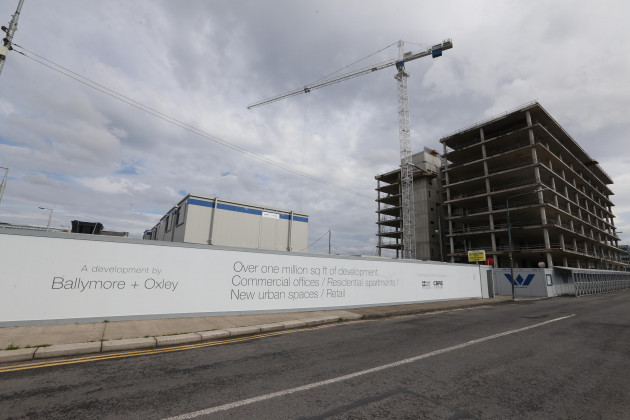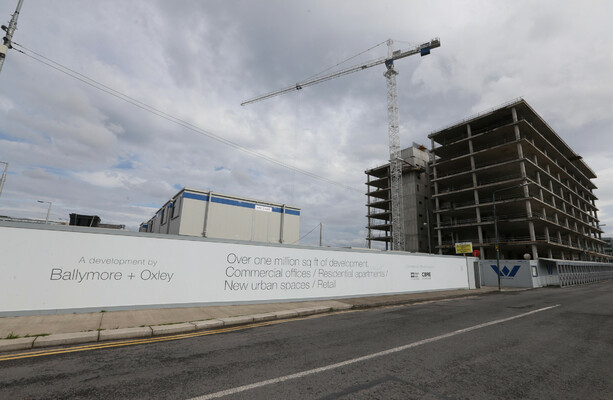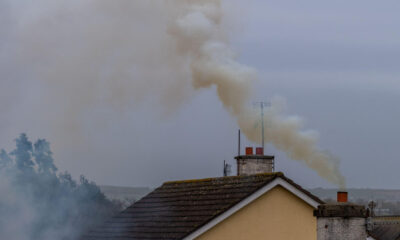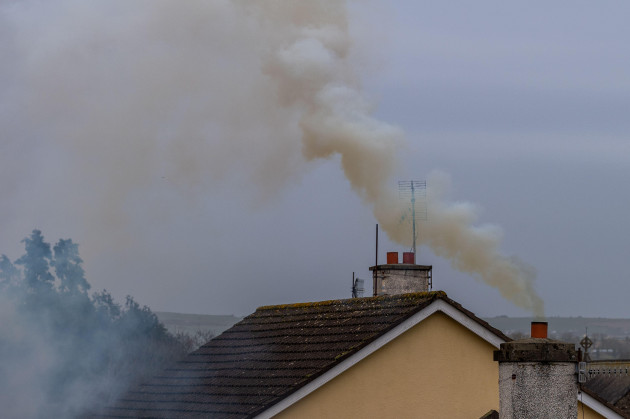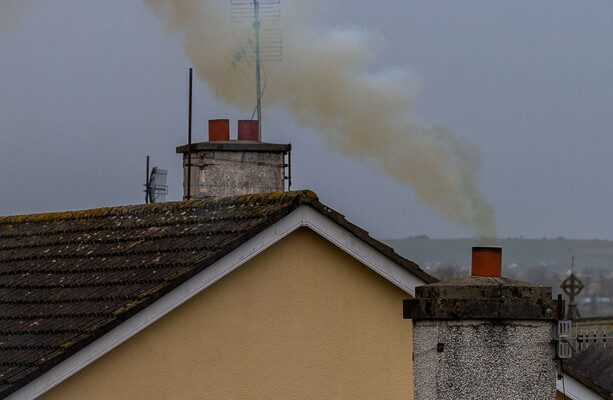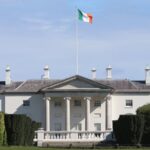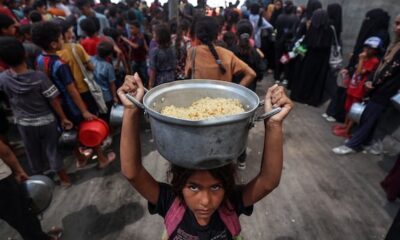LAST UPDATE
|
50 mins ago
THE GOVERNMENT HAS been urged to adopt a “tightened fiscal stance” in Budget 2026 and has also been criticised for its opposition to the EU-Mercosur trade deal.
In the ESRI’s summer commentary, it was warned that Ireland’s finances may be as vulnerable now as they were in the lead-up to the financial crisis of 2008 because of the government’s reliance on windfall tax revenues from international corporations.
Today’s Autumn statement by the think-tank has reiterated these concerns.
The ESRI said that once windfall corporation tax receipts had been taken into account, deficits have been running in recent years.
“The windfall nature of a large proportion of Ireland’s corporate tax receipts means that they could vanish quickly,” said the ESRI in its quarterly economic commentary.
“The parallels to the collapse in building-related taxes at the outset of the economic crisis of 2007–2008 are clear,” it added.
As a result, the ESRI has cautioned the government to move towards a surplus, adjusting for the windfall taxes.
The ESRI noted that this would be a “much tighter envelope than envisaged in the Summer Economic Statement”, when the Government provided for a budgetary package worth €9.4 billion.
This would be comprised of a tax package of €1.5 billion and additional spending of €7.9 billion.
It was also remarked that the growth in government spending is more rapid than the ESRI would like in a “robust economy” with a low unemployment rate.
The ESRI added that “stricter fiscal discipline” in Budget 2026 should be accompanied by “more focused resource allocation”, such as additional Child Benefit payments “directed at those in greatest need”.
Earlier this month, a report by the ESRI found that a second tier of child benefit targeting low income households “could lift more than 50,000 children out of poverty”.
Taoiseach Micheál Martin said he was “working” on introducing a second tier of child benefit but added: “There are complexities in terms of getting such a system up in place that we don’t want anyone to lose out.”
Meanwhile, the ESRI said trade-offs will have to be made and “certain activities given priority” to meaningfully address bottlenecks in housing and infrastructure.
While the most recent data indicates an increase in housing output, there are also sustained increases in other construction activity.
The ESRI report states: “As evidenced by the recent rise in construction wages, the sector is unlikely to have the capacity to simultaneously increase housing output substantially, invest in critical infrastructure, and retrofit and renovate the existing housing stock at full employment.”
Mercosur ‘contradiction’
The Autumn commentary also looked at the government’s stance on the EU-Mercosur trade deal and questioned whether opposition is a “major policy contradiction” at a time when the “promotion of free trade is important for Ireland”.
At the start of the month, the European Commission gave its final go-ahead to a huge trade deal with South American bloc Mercosur, 25 years after negotiations began.
The Mercosur bloc brings together Argentina, Brazil, Paraguay and Uruguay and the agreement is a key pillar in the push by Brussels to open new markets in the face of US tariffs.
However, it has faced stiff opposition from farmers and Ireland is one of the few EU countries not to support the deal.
The ESRI pointed towards a report commissioned by the Department of Enterprise, Trade and Employment in 2021.
According to this report, exports from Ireland to the Mercosur countries were projected to grow by €1.1 billion out to 2035.
And while beef farmers oppose the Mercosur deal, the 2021 report found that the “upper bound estimate was for a fall in beef production of 0.08%”.
However, while the ESRI said the study of the Mercosur deal “shows positive economic outcomes for Ireland”, it acknowledged that “the opposition to the deal is unsurprising”.
The ESRI urged the government to “reflect carefully on its reservations” to the deal.
It added that “those who lose as a result of the deal can be compensated and supported”.
“There might be good reasons why the losses of one group should be weighted disproportionately compared to the gains for others, but it is important to be transparent on this,” said the ESRI.
It added that economic policy should be directed towards protecting and enhancing free trade and that it seems “counterproductive to be opposing free trade agreements”.
Pharma sector
Elsewhere, the Autumn commentary noted that the economy continues to perform robustly, with continued growth in household consumption, employment, and tax receipts.
It also noted that the agreement on tariffs between the US and the EU has removed much of the uncertainty that has prevailed in Ireland.
However, the ESRI said the 15% tariff is a “clear deterioration in Ireland’s trading environment relative to previous policy regime” and that this will impact firms and sectors whose exports are most exposed to the US.
There was a major increase in economic output in the first half of the year, particularly in the pharma sector, in an attempt to frontload activity ahead of new US tariffs.
Exports jumped sharply in Q1 before significantly scaling back in Q2.
The ESRI expects exports to grow by 6.1% this year and by 0.9% in 2026.
The ESRI meanwhile noted that there is still uncertainty in the pharma sector as it remains under a section 232 investigation in the US.
On 16 April, the Trump administration initiated new investigations into the imports of pharmaceuticals under Section 232 of the Trade Expansion Act.
The purpose of a Section 232 investigation is to determine the effect of imports on US national security and whether certain imports “threaten to impair” national security.
In the context of pharmaceuticals, the investigation will look at the role of foreign supply chains in supplying the US market and the extent to which domestic US production can meet demand.
A report on the investigation was due to be filed in August but is still outstanding.

